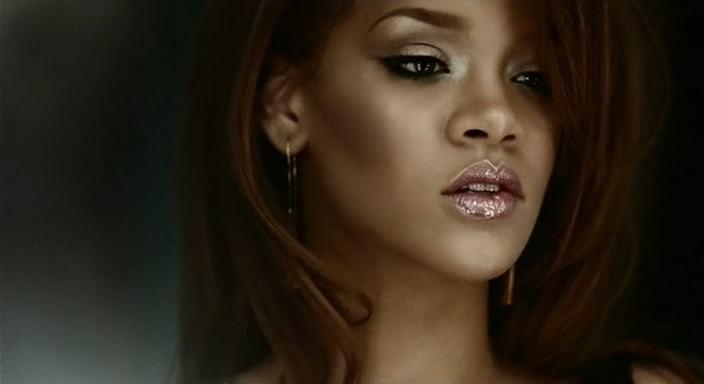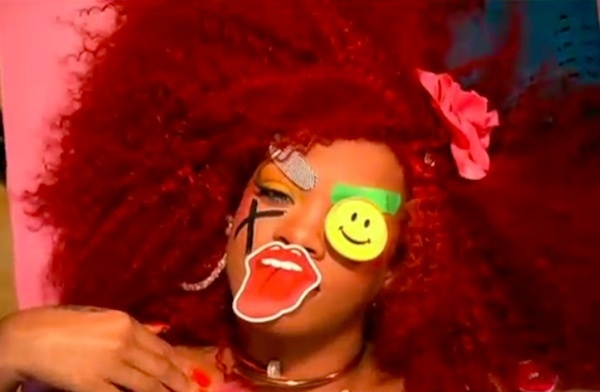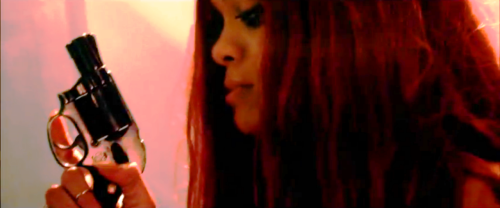Biyernes, Marso 23, 2012
Rihanna’s Feminist Challenge
“I maybe bad, but I’m perfectly good at it.”
Despite all claims that Rihanna is just another pop tart in the music industry, I’d like to argue that she boasts a handful of brilliant songs and corresponding videos that distinguishes her from that list. Not only does she manage to conceive catchy hooks (or maybe Def Jam does that for her), she also captures an era of feminist struggle within her artifice.
In the middle of her young seven-year-old career, she has included in her art feminine modes of guilt, abuse and (finally) sexual liberation and dominance. Half of her popularity is due to the fact that she is a victim of abuse. The much-talked about domestic violence Chris Brown has committed towards the young pop star back in 2008 garnered so much media attention that it scarred the careers of both artists. But to her benefit, Rihanna used the music and visuals to escape the demons of the incident. The recorded songs and videos provided an in-depth approach to her condition. In return, the incident was followed by two dark and personal Rihanna albums. From ‘Rated R’ to ‘Loud’, the artist brought to the mainstream different forms of counterattack both allegedly to Chris Brown and the media, all the while exploring her own sexuality and challenging social norms, not to mention blossoming before the eyes of the audience and winning back loads of cash and undeniable fame.
Yet more significantly, these songs and videos present a good girl gone bad. Bad in a sense that she is not the normative kind of artist, one who sings for the excitement of consumers, (well that is still something to debate on) but a woman who has experienced one of the hardships brought about by a patriarchal system. In a way, the incident and the art that emerged out of it made way for personal statements that women can relate to. Rihanna’s flesh-flashing is not an empty consumerist strategy, too: it’s part of her messages. And whether it is the cause or the effect of her feminist challenge, I can say that it is necessary. And notably after years of these feminist modes, the Barbadian artist tops off her ventures with a solution: a gunshot - the sound of freedom from oppression and vengeful Fury against the oppressor.
Which all raise the question: is Rihanna a feminist?
This summer, I am going to study the feminism surrounding Rihanna’s aesthetics. Starting from the release of ‘Unfaithful’ as a single ‘til the music video of ‘Man Down’ gets banned from several TV stations in the US, the study aims to discover how Rihanna represents female struggles and the 2010s Girl through pop music (which is generated through MTV and the internet: YouTube, Twitter, etc.). Though it’s possible that this era of thought within Rihanna’s career would reach deeper trenches as she grows older and wiser, I believe the incidences surrounding ‘Man Down’ concludes an initial period of feminism that Rihanna herself seemed to emphasize in the first place. Thus, I will focus on the artist’s fruitful middle career right after ‘Music of the Sun’ and before ‘Talk that Talk’. Yet it is still a huge question what exactly Rihanna wants her audience to take from her musical and visual output. For me, she gives women a new understanding of their condition, and solutions for them to fight it. - Gio Potes, March 2011.
Mag-subscribe sa:
I-post ang Mga Komento (Atom)







Walang komento:
Mag-post ng isang Komento